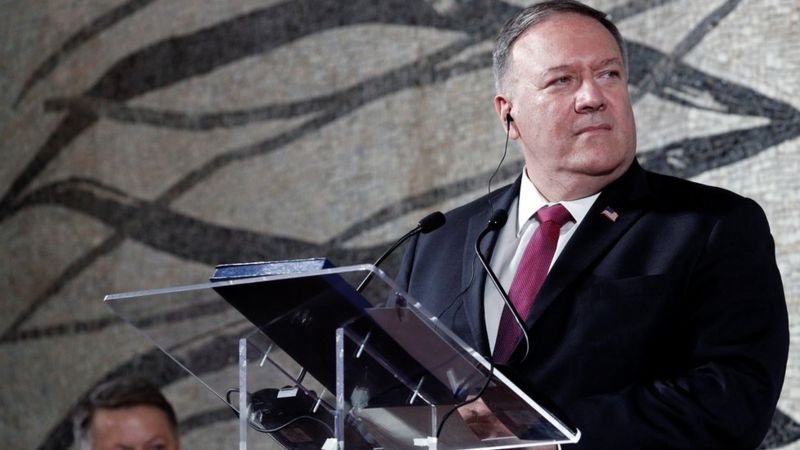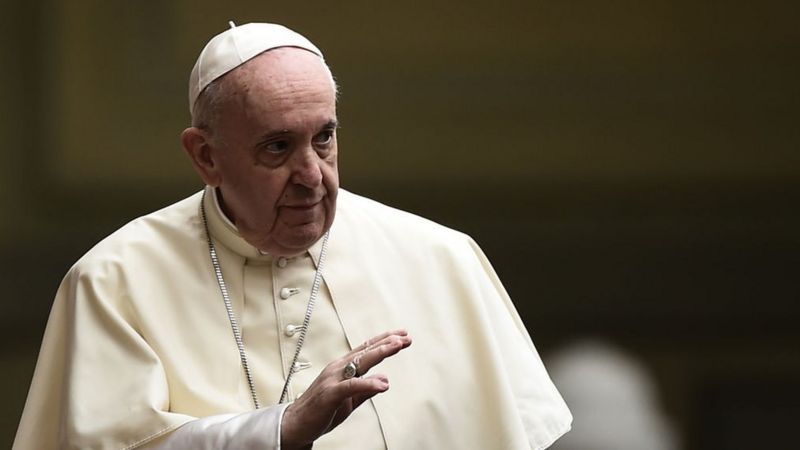The Vatican has denied US Secretary of State Mike Pompeo an audience with Pope Francis.
The Holy See said the Pontiff does not receive politicians during an election period.
The move adds to a diplomatic row following comments by Mr Pompeo about China and the Catholic Church.
The Vatican accused Mr Pompeo of trying to use that issue to attract voters in November's US presidential election.
In
an article earlier this month, Mr Pompeo said the Catholic Church was
risking its "moral authority" by renewing an agreement with China
regarding the appointment of bishops.
Donald
Trump receives support from conservative religious movements, including
conservative Catholic voters, some of whom think Pope Francis is too
liberal.
Human rights groups say many Catholics in China are persecuted and driven underground for pledging allegiance to the Pope instead of an official Chinese Catholic association.
Despite this, in 2018 the Vatican made a deal with China to have some say over the appointment of Chinese bishops.
At
the time Pope Francis said he hoped the deal "will allow the wounds of
the past to be overcome" and bring about full Catholic unity in China.
The agreement is expected to be renewed next month in the face of opposition from some Catholics, including in the US.
In
a speech on Wednesday in Rome Mr Pompeo called on the Vatican to defend
religious freedom in China, saying "nowhere is religious freedom under
assault more than in China."
The
Vatican's two top diplomats, Secretary of State Cardinal Pietro Parolin
and Foreign Minister Archbishop Paul Gallagher, said Pope Francis will
not receive Mr Pompeo.
"The
Pope had already said clearly that political figures are not received
in election periods. That is the reason," Cardinal Parolin said,
according to AFP news agency.
The
two politicians also described Mr Pompeo's public criticism of the Pope
as a surprise and Archbishop Gallagher commented that issues for
discussion should be negotiated "privately".
Cardinal
Parolin also said it is possible Mr Pompeo's comments were designed to
encourage Catholics to support Mr Trump at the polls in November.
"Some
have interpreted it this way - that the comments were above all for
domestic political use. I don't have proof of this but certainly this is
one way of looking at it," he suggested.
He added that the Vatican's deal with China is nothing to do with the US.


